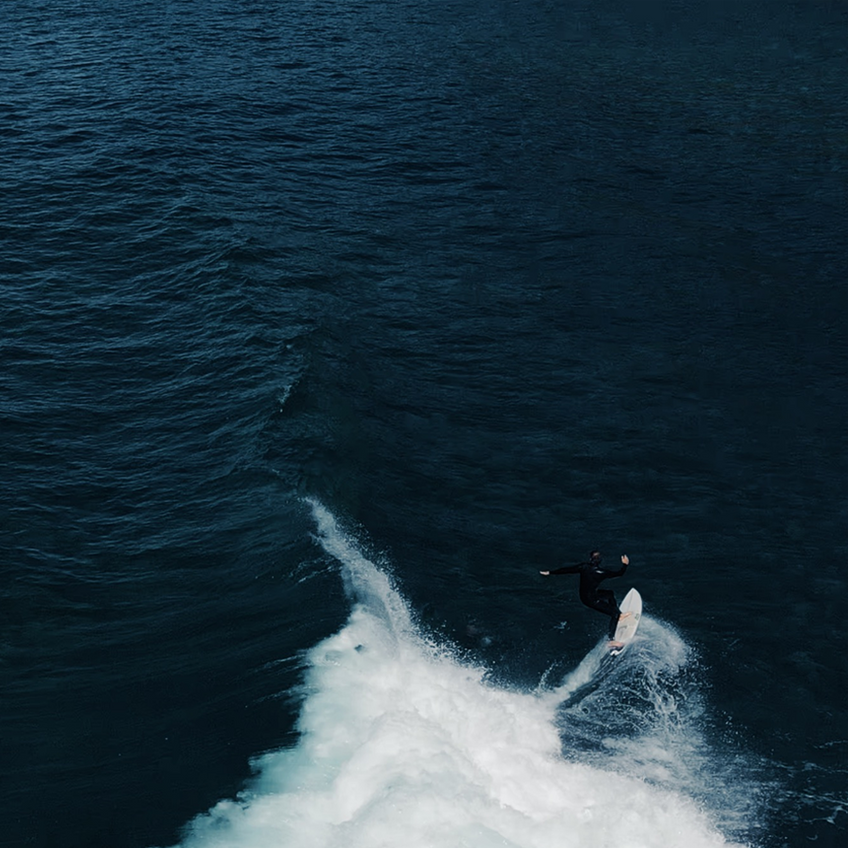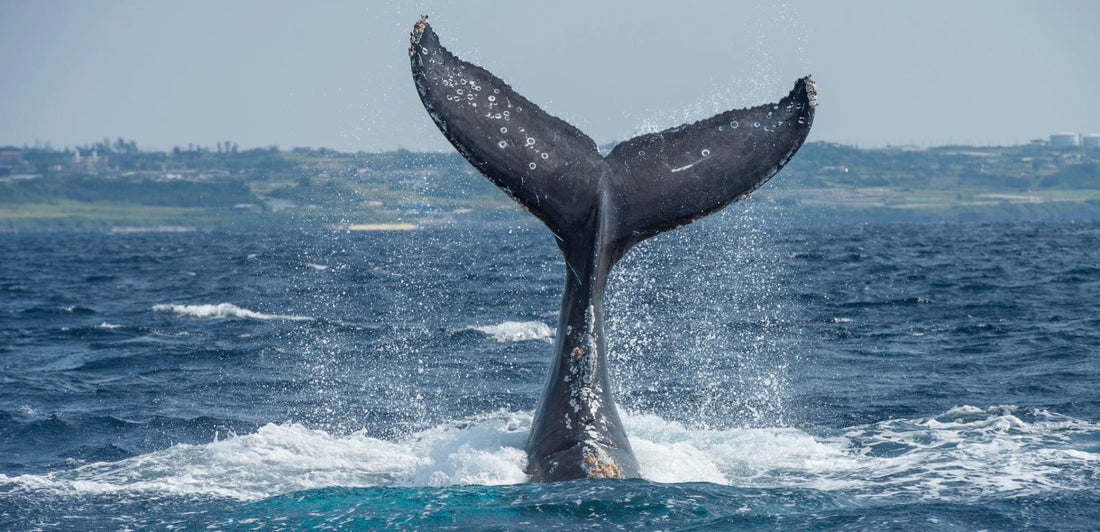With Whale Day taking place on the 19th of February and our popular #TWOTHIRDSWHALEDAY contest well underway (three winners will be announced on the 20th of February!), we thought this was a good time to highlight ways that whales care for ocean ecosystems, in much the same way that our sustainable clothes do.
Read on to find out the incredible ways that these gentle giants form a vital part of the circle of life, as well as being the inspiration for the whale logo that features on much of our eco-friendly clothing.

Priceless Poop
It’s hard to imagine faeces being vital for the functioning of an entire ecosystem, but a whale’s is. Whale dung provides crucial nutrients like iron, which sustain fish and plankton stocks, the latter sequestering huge amounts of carbon dioxide.
You could say that whales are nature’s original carbon capture heroes, far surpassing any technological advances in the field. Indeed many scientists refer to whales as being expert marine ecosystem engineers.

The Ocean’s Free Taxi Service
You would think that thumbing a ride in the vast expanses of the ocean would be impossible. Not if you’re a suckerfish like the remora! These crafty ocean critters latch on to the bodies of whales, forming a symbiotic relationship in which the whale has potentially harmful parasites removed, and the remora gets a free meal.
Here at TWOTHIRDS we often talk about concepts such as closed loop processes, which enable us to cut down or eliminate the waste and overproduction that can occur during the crafting of our sustainable jackets, trousers and knits. Honed by thousands of years of evolution, whales and remoras have built their own closed loop process, with both creatures mutually benefitting.
Even Deceased Whales Keep Giving Back
Our eco-friendly clothes are handcrafted and designed to last a lifetime but in the end even they will one day require repair or be recycled. The key is that not a single thread should ever be condemned to landfill or flung in the ocean.
Much in this regard can be learnt from the end of a whale’s life cycle, with its body becoming a veritable hub for new life to spring from. It is predicted that up to 400 species of sea life can be sustained, for up to 50 years, on just one fallen whale carcass.
As well as providing a springboard for new life to flourish, a whale’s body also acts to lock in all the carbon dioxide it has absorbed over its lifetime. In many cases this amounts to 2000kg of carbon dioxide per whale. Before whaling operations began to decimate whale populations, it was estimated that fallen whales alone accounted for the extraction of CO2 equivalent to that produced by 150,000 cars in one year.

Why Whales Are Sacred At TWOTHIRDS
As you’ve read, whales are pretty incredible beasts, and at TWOTHIRDS they are given the prominence we believe they deserve. They appear on many of our sustainable garments – proudly displayed, printed or embroidered on high-quality, eco-friendly t-shirts, sweatshirts, beach towels and much more besides. Our coveted whale logo regularly appears across our sustainable adult fashion and kids fashion ranges; the brainchild of our creative maestro Emil Kozak.

In many ways we see ourselves as the blue whale of the slow fashion industry, creating clothes that form organic loops and circular systems, which mean our sustainable clothes become a valued part of the ecosystem, rather than being cast aside after a few weeks, as is the fast fashion norm.
What Can You Do To Protect Whales?
We are constantly on the search for ways to help whales thrive. We mainly do this by trying to make our high-quality garments as sustainable as possible: avoiding the use of harmful dyes that leach into ocean habitats, encouraging moves away from fossil fuel reliance by using less virgin plastic materials, and supporting wildlife conservation groups like WWF and the Rimba Raya biodiversity reserve in Indonesia.

As an individual it can sometimes feel futile to try and make a difference. However, by buying slow fashion garments from TWOTHIRDS, and supporting NGOs that specialise in safeguarding whale habitats, anyone can play an important part in ensuring that these majestic creatures grace our oceans forever.
Some of the organisations we think deserve special attention include Ocean Alliance, Sea Shepherd and Greenpeace, although there are many others to check out. We also encourage people to lobby their local councils and government representatives to ensure they hold ocean polluters to account.








